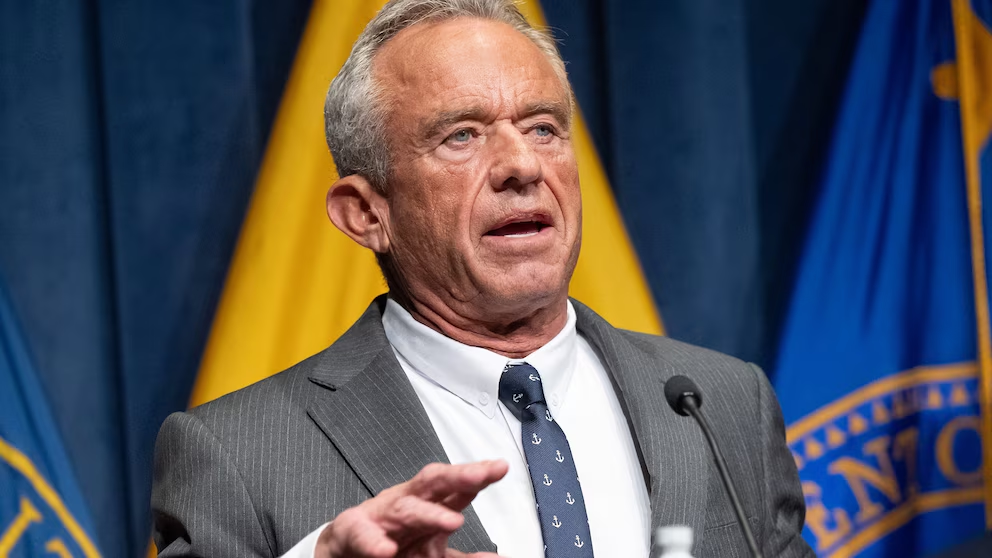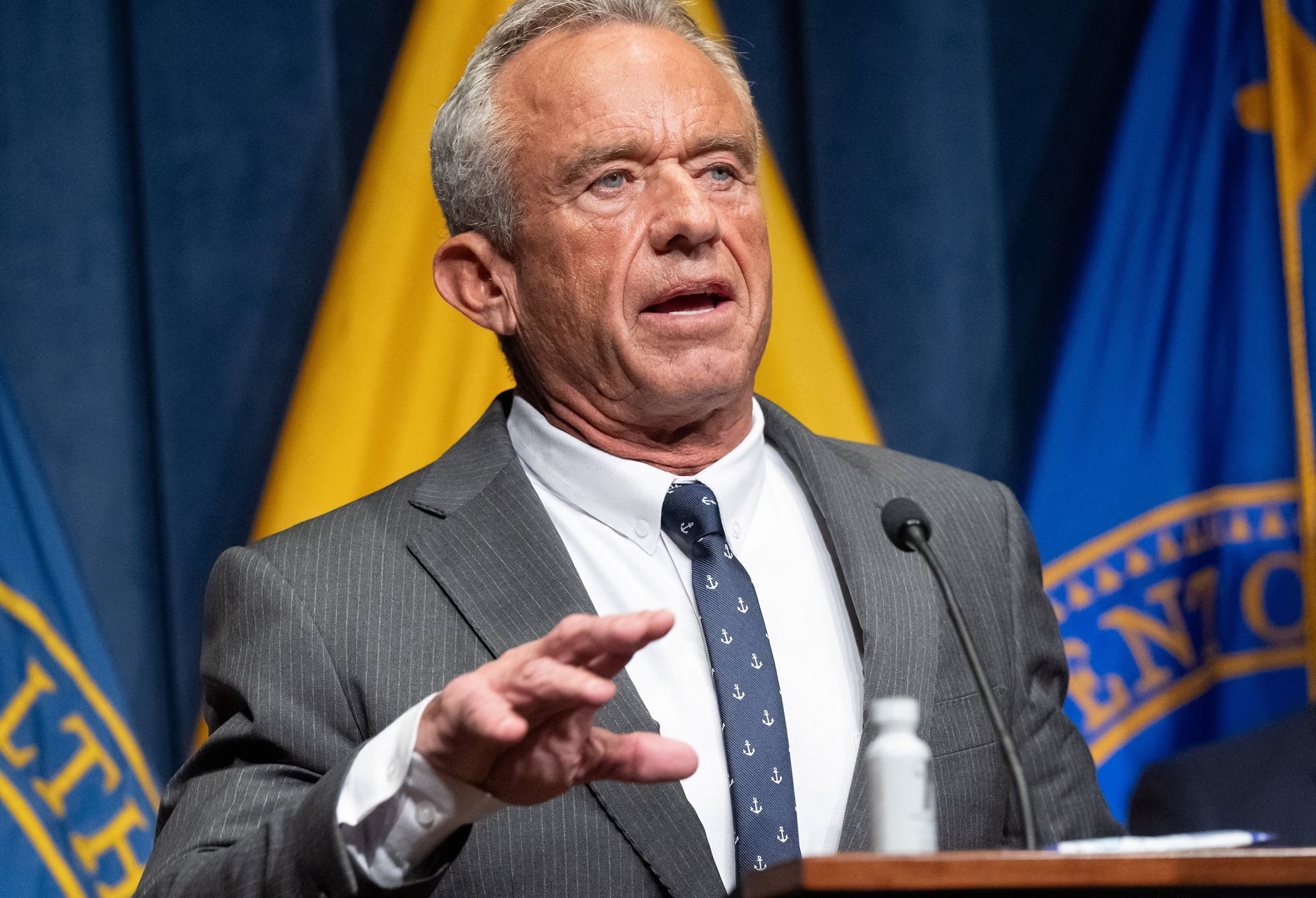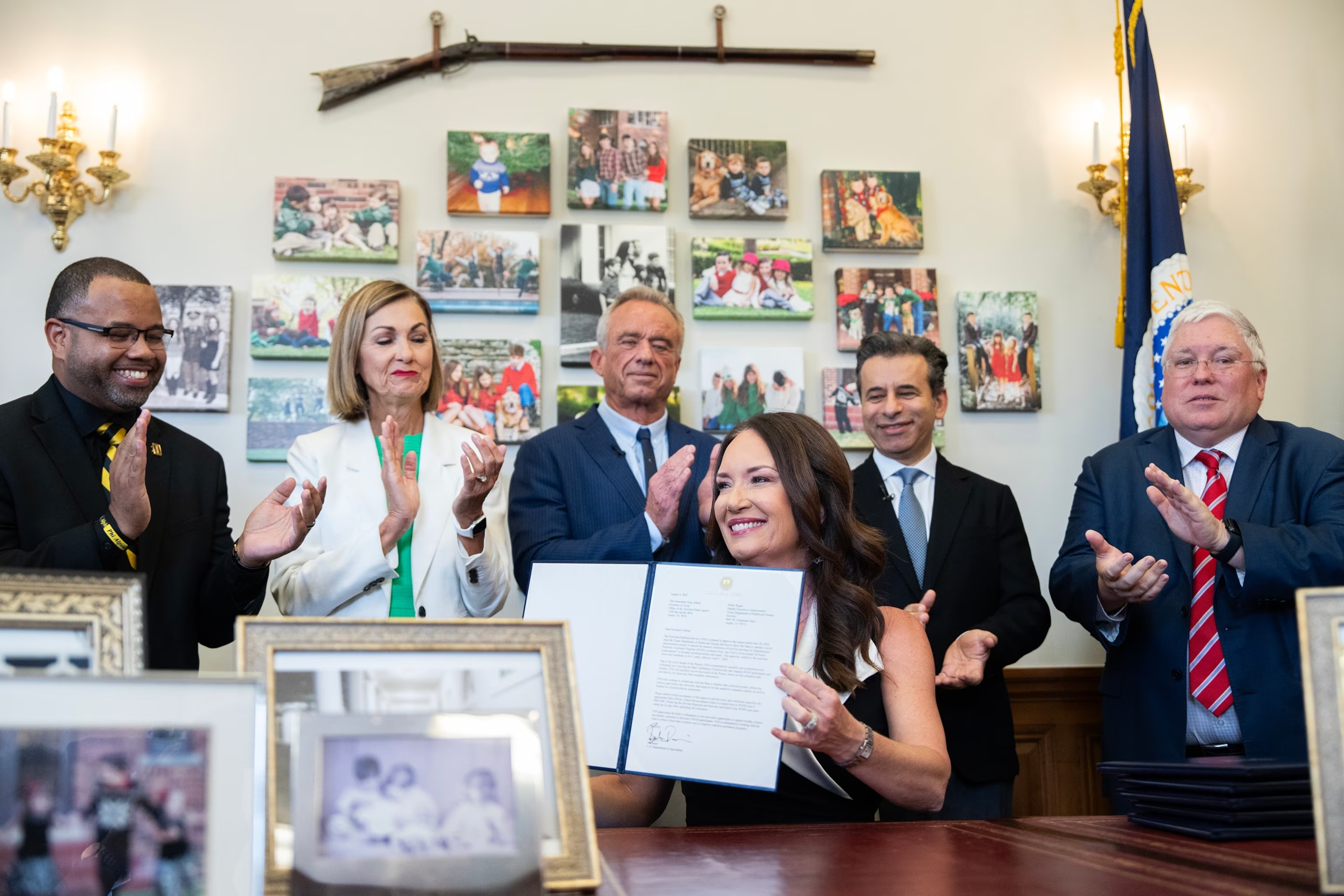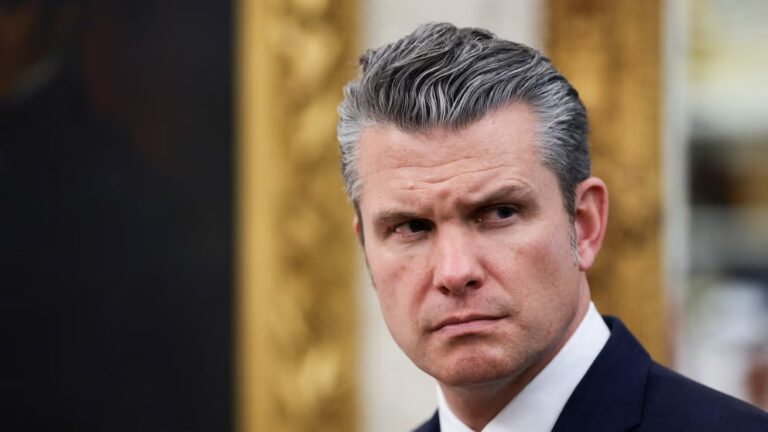
4:09Health and Human Services (HHS) Secretary Robert F. Kennedy, Jr. addresses the media during a press conference at HHS headquarters in Washington, DC, on July 29, 2025.Saul Loeb/AFP via Getty Images
Earlier this month, Health and Human Services Secretary Robert F. Kennedy Jr. achieved a significant milestone for the "Make America Healthy Again" campaign when West Virginia became the first state in the nation to outlaw artificial food colorings in school lunches.
Since that announcement, several other Republican governors have quickly joined the movement, prohibiting certain food colorants from children’s lunches — with some also banning additional chemical additives. A few GOP officials have gone a step further, imposing warning labels on specific food additives statewide.
Historically a concern for Democrats, including former First Lady Michelle Obama — and criticized as "nanny state" governance by anti-regulation conservatives — food regulations have recently garnered a surge of backing from Republican leaders.
Kennedy’s "Make America Healthy Again" initiative against food additives, receiving strong endorsement from President Donald Trump, has gained traction in staunchly Republican states like Louisiana, Texas, and Oklahoma.
"Traditionally, this was a Democratic issue," Kennedy shared with ABC News during a press conference on Monday, expressing his optimism that Democrats will continue to enact food regulations in their states despite the "partisan brand" associated with the movement.

Health and Human Services (HHS) Secretary Robert F. Kennedy, Jr. speaks during a press conference at HHS headquarters in Washington, DC, on July 29, 2025.Saul Loeb/AFP via Getty Images
West Virginia—home to the second-lowest life expectancy in the nation, as reported by the Centers for Disease Control and Prevention—has adopted one of the most rigorous stances, aiming to expand its ban on artificial dyes and other additives statewide by 2028.
The law closely resembles those enacted by California’s Democratic Governor Gavin Newsom, who approved similar legislation prior to Kennedy and Trump assuming office. The California Food Safety Act, which was passed in 2023, prohibited four additives statewide, followed by another California law in 2024 that banned six specific synthetic food dyes from school lunches. Both laws will come into effect in 2027.
"Sometimes you discover unexpected alliances, but the crucial aspect is what you can achieve," West Virginia Governor Patrick Morrissey, a Republican, stated to ABC News. If these changes result in improved health outcomes for West Virginians, it will be considered "a win," he added.
West Virginia stands among 10 Republican-led states that have initiated food regulations since Kennedy took office. In that same period, only two Democratic governors, Arizona’s Katie Hobbs and Delaware’s Matt Meyer, have enacted similar legislation.
Meanwhile, 11 Republican states have requested federal waivers to ban soda or candy from the Supplemental Nutrition Assistance Program (SNAP) for low-income Americans. The only Democrat-led state participating in this SNAP policy modification is Colorado.

Secretary of Agriculture Brooke Rollins signs a SNAP food choice waiver at the USDA Whitten Building, August 4, 2025. Also appearing are, from left, Patrick Penn, deputy under secretary of Food, Nutrition, and Consumer Services, Iowa Governor Kim Reynolds, HHS Secretary Robert F. Kennedy Jr., FDA Commissioner Dr. Marty Makary, and West Virginia Governor Patrick Morrisey.Tom Williams/CQ-Roll Call, Inc via Getty Images
More states are poised to act, according to John Hewitt, senior vice president of state affairs for the Consumer Brands Association, which represents significant food companies like Kraft Heinz.
There has been at least a tenfold increase in the number of food-related bills introduced or discussed at the state level, he noted, and there has been a "substantial shift" in the states expressing interest.






